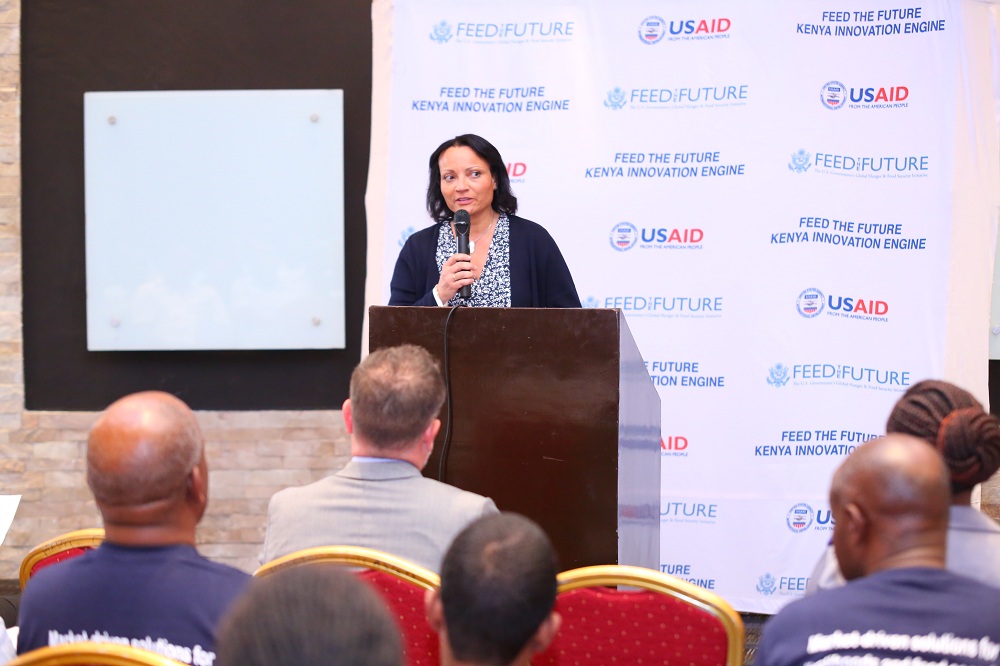The Kenya Innovation Engine (KIE), a USAID-funded programme Feed the Future initiative, has so far seen benefiting enterprises attract more than Ksh 820 million in additional private and public sector funding.
The innovations provide solutions to farmers’ needs through mobile commerce, supply chain automation, knowledge management and cashless transaction systems, automated milk-weighing and receipting solutions, and livestock insurance through several state-of-the-art modules.
The programme held a function to honour entrepreneurs, investors, counties, and farming cooperatives who have taken part in the initiative, bringing 24 agricultural innovations to more than 202,000 smallholder farmers in 35 counties in Kenya.
The five-year programme has identified, nurtured and brought to scale innovative, private sector-oriented solutions to food insecurity, under-nutrition, and poverty. Innovators designed new concepts, products and services to maximize their commercial potential, and improve nutrition and livelihoods within the targeted communities through a private sector approach. KIE set up a system that operates similar to a venture capital fund by providing targeted financial support and tailored technical assistance to agricultural innovations that are well-positioned to leverage additional funding to become fully sustainable in the market.
“We commend the support from national and county governments, as well as from investors at the project and enterprise levels – all of which we consider as invaluable co-investors,” said Tina Dooley-Jones, USAID Deputy Mission Director for Kenya and East Africa.
Related: Multi-billion deals inked to boost Africa’s agriculture
“The fact that the farmers are parting with money over and over again, makes us confident that when we close the programme, the interventions will continue, led by these private sector players,” said Titianne Donde-Ommes, KIE’s Chief-of-Party.
Thanks to their partnership with USAID though KIE, enterprises have leveraged Ksh 852 million (US$8.2 million) worth of private sector investment, and created more than 6,000 jobs at the business and farm level. In the course of implementation, in order to ensure sustainability, KIE-supported enterprises have also formed 56 strategic public-private partnerships with progressive local and international organizations such as Safaricom Ltd., Equity Bank, Microsoft Corporation and VISA.












Leave a comment